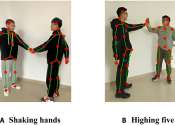A sensor to detect human body conditions in real-time
DGIST announced that Professor Hyuk-Jun Kwon in the Department of Information and Communication Engineering developed a 'patch-based health diagnosis sensor system' that is easily attached to skin in association with Professor ...
Jan 8, 2020
0
3









